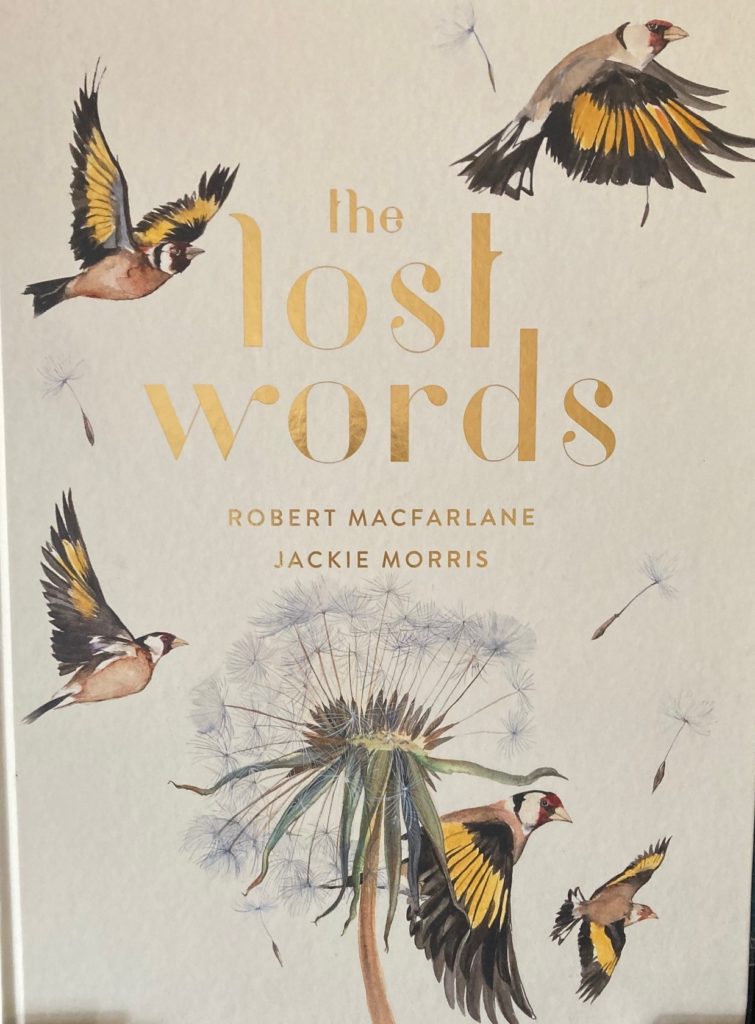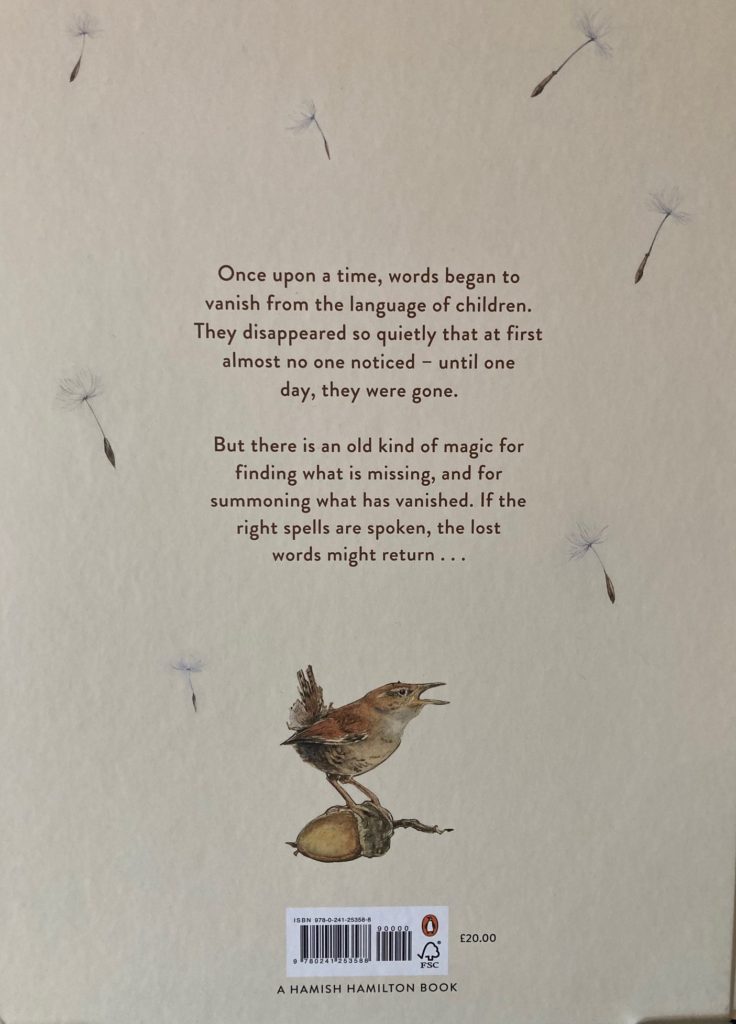

When a dear friend gave me this book for Christmas this year (thank you, Ann!) I learned another aspect to the lexicographical arts. Here is another facet of the fascinating and knotty and language-and-culture-rich issues faced by those who work to keep dictionaries alive to language as it is used.
The Lost Words by poet Robert Macfarlane and illustrator Jackie Morris (Hamish Hamilton imprint of Penquin Books, 2017) is a brilliant, “Hey! Wait a minute!” response to the announcement in 2015 that the Oxford Children’s Dictionary planned to drop a number of words that evoke the natural world (such as “acorn,” dandelion,” “ivy,” “starling,” and “wren”–all denizens of urban areas in Britain) to make way for such terms as “broadband” and “cut and paste.” For a great summary of this publication and the impetus for it, please take a look at the coverage given it by the excellent website, Brainpickings.
Macfarlane and Morris did not simply object and protest, they translated their advocacy to words and the natural world into some of the most beautiful illustrations and poems (or “spells”) that summon the magic of these endangered forms in a way that is unforgettable. This book would make an excellent gift for any adult or child logophile, and a portion of the royalties are going to Action for Conservation, a charity dedicated to inspiring young people to take action for the natural world, and to the next generation of conservationists. (www.actionfor conservation.org.) In addition a free “Explorer’s Guide to the Lost Words“, written by Eva John and intended for teachers and others is available at the John Muir Trust website.
Regarding the Poem “Japanese Maple”:

I have long been an admirer of the drawf Japanese maple trees, ever since I first saw them at the Minnesota Landscape Arboretum. Yet in our garden of mature trees, we have not been able to find a place where one might thrive.
Note to self: take cameras to Chaska and take lots of photographs of these beautiful trees, in all four seasons!
Until tomorrow,
LESLIE
